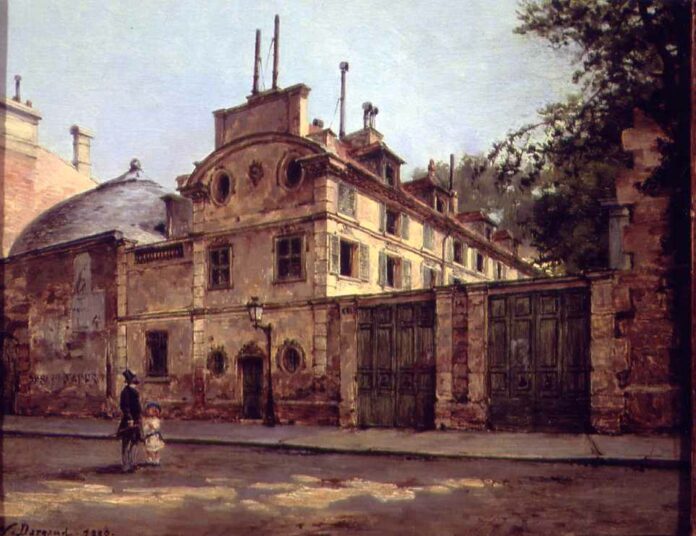
Socialistisk Biblioteks Tidslinje med links til begivenheder og personer i 1799.
Se også Index over personer, organisationer/partier og værker (som bøger, malerier, mm.), steder, begivenheder, mv., der er omtalt på hele Tidslinjen, titler og indhold på emnelisterne osv.
20. maj 1799
Den franske forfatter, skaberen af naturalismen i romanen, Honoré de Balzac fødes i Tour. (Dør i Paris den 18. august 1850). (En af Karl Marx’ yndlingsforfattere).
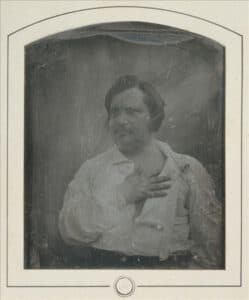
Se:
- Balzac, Honoré de. Af Helge Rønning (Leksikon.org)
- Honoré de Balzac. Af Hans Peter Lund (Denstoredanske)
- Honoré de Balzac (Wikipedia.org). Længere engelsk leksikonartikel.
Balzac er ikke støvet. Af Margit Andersen (Arbejderen.dk, 28. april 2022). “Honoré Balzac’ roman ‘Bristede forhåbninger’, som han skrev i slutningen af 1830’erne, er nu blevet mesterligt filmatiseret under titlen ‘Tabte illusioner’. Balzac skrev om borgerskabet og aristokratiet, og Karl Marx har skrevet, at han havde lært mere om kapitalismen ved at læse hans romaner end af alle de økonomiske skrifter, han havde læst.”
Besat af Balzac. Af Jacob Ludvigsen (Politiken, 20. januar 2002). “Kronikøren slår et slag for den franske forfatters halvanden reolmeter værker.”
Balzac’s Paris in the dark and in the light (Verso/Blog, 25 June 2025). Excerpt from Eric Hazan, Balzac’s Paris: The City as Human Comedy (Verso, 2024, 208 p.). “Explore Paris arm in arm with Balzac, 19th century France’s most famous novelist and observer.”
The revolutionary dialectic of Balzac’s ‘Human Comedy’ (In Defence of Marxism, 24 May 2024). “Honoré de Balzac is renowned as a prolific literary genius and was one of Marx and Engels’ favourite authors. He was a pioneer of the Realist style that would be taken up by such famous authors as Émile Zola and Charles Dickens. In this article, Ben Curry explores Balzac’s Realist method, the predominant themes of his vast body of work, known collectively as The Human Comedy, and the fascinating paradox that lies at its heart.”
Lost Illusions: Balzac’s great novel interpreted for our time. By David Walsh (World Socialist Web Site, 25 July 2022). “Lost Illusions is a monumental novel, a turning point in modern literature, and Giannoli and Jacques Fieschi, his co-screenwriter, have done a remarkable job of dramatizing it.”
Perceiving Materiality: Balzac’s social realism and the Marxist connection in Père Goriot. By Mike Breger (At the Apogee, Blog, 12 December 2018). “… [Balzac’s] literary realism uncovered the importance and preponderance of economic realities over feelings and ideas … Balzac’s literary realism had a profound effect on … Karl Marx and Friedrich Engels, who shared this material fixation …”
Capitalist morality laid bare. By Linda Taaffe (Socialism Today, Issue 155, February 2012). Review of Honoré de Balzac, Lost Illusions (Penguin Classics). “Balzac, one of the founding fathers of realism in European literature, tells a captivating narrative of love, desire, ambition and tragedy. It is a great read.”
A man of honor: Balzac’s Le Colonel Chabert. By Laura Villon (World Socialist Web Site, 29 May 2000). “One cannot hope to understand French bourgeois society of the early nineteenth century, in all its complexity, without becoming acquainted with Balzac’s characters.”
Litteratur:
Guldets satan: introduktion til Balzac og Den menneskelige komedie. Af Eric Danielsen (Vindrose, 1994, 244 sider). Se anmeldelse af John Pedersen: Balzac og pengene (Bogens Verden, nr.5, 1995). “Eric Danielsens bog er nemlig ikke et sofistikeret litteratur-videnskabeligt fremstød. Det er en erfaren og engageret læsers invitation til at gå på opdagelse i en verden, han selv har haft stor glæde af at gæste. En bog om litteratur fra fortiden med bud til nutiden.”
Bl.a. om tilblivelsen af hans livsværk “Den menneskelige komedie” (oprindelig tysk, 1949).
Balzac – udvalgte noveller. Af Honoré de Balzac (Det Poetiske Bureaues Forlag, 2019, 686 sider). “Udvalget … er hentet blandt de noveller og kortromaner der indgår i Den menneskelige komedie, og bevæger sig gennem de fleste af seriens overordnede temaer: landlivet, livet i Paris, livsfilosofiske fortællinger, politiske fortællinger.”
Gamle Goriot (Turbine, 2022, 340 sider; oprindelig 1835). “… fremskriver suverænt det borgerlige samfunds arketyper og afslører, hvordan kapitalen som en ond ånd, skaber den nye verdens moral.” Matthias Dressler-Bredsdorffs anmeldelse i Politiken (16. april 2022, Bøger, s.12-13).
Se også på Socialistisk Bibliotek:
Linkboxen: Oplysningstiden/The Enlightenment
9.-11. november 1799
Napoleon Bonaparte indsætter sig selv som førstekonsul i Frankrig efter kup 9. november (18 brumaire). (Bonarpartismen fødes, og datoen regnes ofte for den franske revolutions afslutning, 1789-1799).
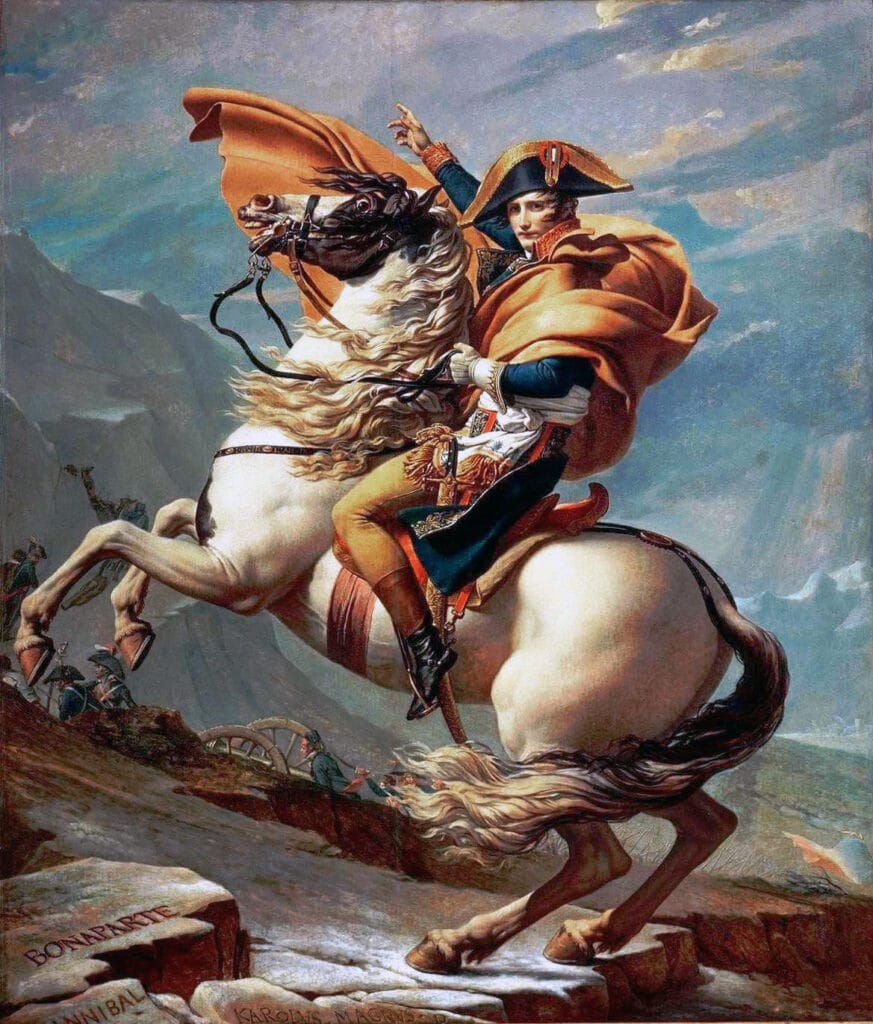
Se:
- Napoleon Bonaparte (Denstoredanske)
- Bonarpartisme (Leksikon.org)
- Napoleon (Wikipedia.org)
- Bonapartism (Wikipedia.org)
7 ting, du måske ikke vidste om Napoleon. Af Nina Kristiansen (Videnskab.dk, 30. januar 2024). “Ridley Scotts storfilm om Napoleon Bonaparte beskriver, hvordan han kom til magten, og hvordan han mistede den – men der er meget mere interessant at fortælle om den korsikanske generals liv.”
Hvordan husker vi diktatoren Napoleon? Af Jonas Paludan (Solidaritet.dk, 19. november 2023). “En storfilm om diktatoren Napoleon Bonaparte er på vej til de danske biografer. En ny generation vil dermed stifte bekendtskab med manden, som på brutal vis omformede Europas grænser og historie. Som historiker er det svært at være utilfreds, når historien fylder det store lærred, men det er også med en god portion skepsis, for historiske film former vores forståelse af fortiden.”
Napoleon’s war economy (Michael Roberts Blog, December 12, 2023). “… my criticism of the film is that there is no real explanation of why Napoleon rose to the top in the French revolution, why he won his battles and why he lost the war in the end.”
The Eighteenth Brumaire of Louis Bonaparte. By James Illingworth (International Socialist Review, Issue 76, March 2011). Review of Karl Marx’s book (1852). “Marx wrote two short books on the revolution of 1848: The Class Struggles in France and The Eighteenth Brumaire of Louis Bonaparte. While this review will focus on the latter text, readers are strongly recommended to read the two books together.”
The rise and fall of Napoleon Bonaparte (In Defence of Marxism, 19 July 2005). “In this in depth article Alan Woods looks at the specific historical role of Napoleon Bonaparte. He looks into the characteristics of this man that fitted the needs of the reactionary bourgeoisie as it attempted to consolidate its grip on French society and sweep to one side the most revolutionary elements who had played a key role in guaranteeing the victory of the revolution.”
Bonapartisme som et kriseregimente. Kap. 11:1 i Leon Trotskij: Revolutionen forrådt (1936) (Marxisme Online)
The Eighteenth Brumaire of Louis Bonaparte (1852). By Karl Marx (Marxists Internet Archive). På dansk: Louis Bonapartes Attende Brumaire (Marxisme Online)
The Class Struggles in France, 1848 to 1850 (1850). By Karl Marx (Marxists Internet Archive). På dansk: Klassekampene i Frankrig 1848/1850 (Marxisme Online)
Se også på Socialistisk Bibliotek:
Tidslinjen: 20. juni 1789, om Den Franske Revolution + efterfølgende datoer + links
Linkboxen: Oplysningstiden / The Enlightenment
















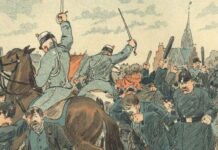
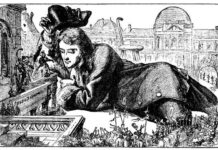
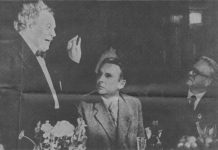
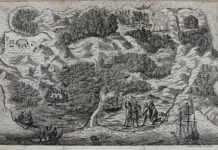
![A demonstration of workers from the Putilov plant in Petrograd (modern day St. Peterburg), Russia, during the February Revolution. The left banner reads (misspelt) "Feed [plural imperative] the children of the defenders of the motherland"; the right banner, "Increase payments to the soldiers' families - defenders of freedom and world peace". Both refer to the economic toll the First World War was having on civilian life, February 1917 (probably around March 7 [O.S. February 22]) Photo: Unknown. Public Domain.](https://socbib.dk/wp-content/uploads/2007/04/1917-februarrevolution2.1500x0-218x150.jpg)












